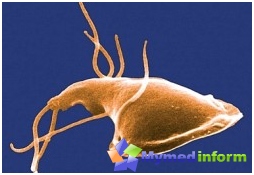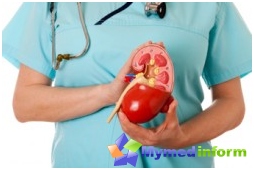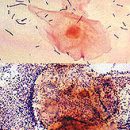There are a large number of types of pneumonia, which differ in origin (type of pathogen), location of localization and length, severity, the nature of the flow and the availability of functional disorders.
Causes of pneumonia
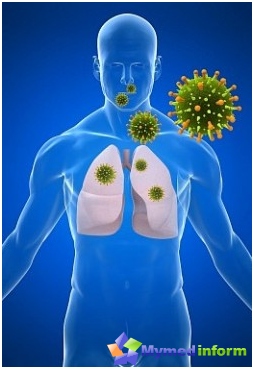
More often than all the occurrence of pneumonia provoke pneumococci (30-40% of the total pathogens), viruses (approximately 10%) and mycoplasma (15-20%). However, today, almost half of the sick cause of pneumonia cannot be established.
There is a so-called working group of pneumonium, which is based on clinical and pathogenetic and epidemiological systems:
- Community-friendly lung inflammation.
- Non-community (nosocomial) inflammation of the lungs.
- Inflammation of the lungs in immunodeficiency states.
- Atypically flowing inflammation of the lungs.
For each of these groups there are a specific number of infectious pathogens. Pneumonia provoking factors:
- smoking and the use of alcoholic beverages;
- heart failure;
- Chronic diseases of the bronchial obstructive nature;
- Direct influence on the respiratory organs of adverse environmental factors and vocational factors;
- chronic nasopharyal diseases;
- Congenital deviations in the bronchopulmonal system:
- immunodeficiency states;
- Operational interventions;
- elderly and senile age;
- Long bedding.
Symptoms of pneumonia
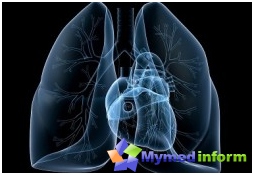
The forecast is not discovered in time, and, as a result, the disappointing non-cured pneumonia - complications in the form of pleuritic, edema and lung abscess will not be caught for a long time.
Immediately call a doctor at home if:
- You are tormented by a strong attacking cough, painful sensations in the chest, heat;
- You are experiencing chills, you are hard to breathe - you have «a rock» on the chest;
- You recently got the flu or got rid of a cold and suddenly felt very bad.
In anticipation of the doctor, you can take the antipyretic agent and syrup (tablets) from cough. When diagnosing and appointing a course of treatment, the doctor is guided by a survey program, which includes compulsory research and research, depending on the testimony.
Mandatory research:
- General blood analysis and urine.
- Radiography of the lungs in two projections.
- Bacterioscopy of sputum painted in gram.
- Sowing sputum with a quantitative estimate of the flora and the determination of its sensitivity to antibiotics.
Studies on the testimony:
- Study of the function of external respiration in violations of ventilation.
- Investigation of blood gases and acid-alkaline equilibrium in heavy patients with respiratory failure.
- Pleural puncture, followed by a study of pleural fluid in patients with fluid presence in the field of pleura.
- Tomography of the lungs when suspected the destruction of lung fabric or light formation of lung.
- Serological tests (detection of antibodies to the causative agent) in atypical pneumonia.
- Biochemical analysis of blood with severe pneumonia in persons over 60 years.
- The study of immunological status in the protracted course of the disease in individuals with signs of immunodeficiency.
- Lung scintigraphy with tall suspected (lung artery thromboembolism).
- Fibrobronchoscopy - when suspected tumor, when hemochkali.
Studies of chronic pneumonia suggest the following procedures:
- General blood test, urine.
- Blood chemistry: ESO, the content of protein fractions, sialic acids, fibrin, serumcoid, haptoglobin.
- Radiography of the lungs in three projections.
- Spirography.
- Lung tomography.
- Fibrobronchoscopy, bronchography.
- Wet research: its cytology, test on sensitivity to antibiotics, check for the presence of mycobacterium tuberculosis, atypical cells.
Treatment of pneumonia
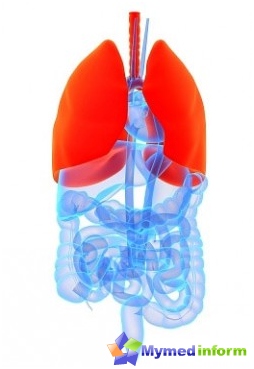
General Profile Specialists (Therapists, Pediatricians, Family Doctors) can treat uncomplicated pneumonia, while its heavy forms require immediate hospitalization of the patient.
Preparations of the antibacterial group of medicines - the foundation on which the treatment of pneumonia is based. As a rule, in the treatment of complicated disease, not one drug is used, but a combination of several. Our site reminds your readers that their dosage and period of application determines only the doctor, no amateur in the presence of even the simple form of inflammation of the lungs should not be!
Today, in the treatment of pneumonia of different etiology, experts prefer the following groups of antibiotics:
- macrolides (macropen, clarithromycin, fromylide, Sumamed);
- Penicillin and its derivatives (Flexin, Ampexiclav, Augmentin, Ampioks);
- Cephalosporins (cefazolin, Zinnat, Zefisim, Ceftriaxone);
- Respiratory fluoroquinolones (Levofloxacin, Sparfloxacin).
Course treatment with antibiotics on average ranks from 7 to 10 days.
Preparations, with the help of which is extended and diluted with wets, are used when coughing with a wet. It may be, for example, the ACC, Bromgexin, Lazolyvan. Patients who suffer from dry unproductive cough, do not prescribe such drugs.
Dyspnea - a reason to assign the reception of bronchorantying drugs, the best option of which are inhaled (Berodual, Salbutamol). They act quickly if used using nebulizer. Euphilline and its derivatives (theoke) Inhalation drugs can be replaced.
If the readings of the testimony requires infusion therapy, which involves a drip with a salt solution (for example, a dish, saline, Ringer's solution). In severe pneumonia, immunomodulatory therapy is carried out using immunoglobulins for intravenous use (for example, octagam, pentaglobin).
In addition, it is necessarily recommended to receive polyvitamins. At high temperatures (38.0-38.5 ° C), antipyretic drugs are prescribed.
To the diet of patients, strict requirements are put forward - it must be full and rich in various vitamins. In the first days after deterioration of well-being recommended gentle food: broths, compotes, fruits. A little later, the diet is expanding with other products, rich proteins, fats and carbohydrates (they should easily be used). If the patient has no complaints about heart failure, resolve abundant drinking (up to 3 liters per day).




